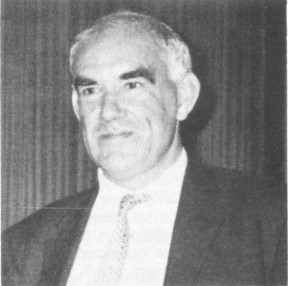AIDAN L F FULLER F C A
We record with deepest regret the death on 8th April, after a short illness, of Aidan Fuller, at the age of 52. He was a founder member of the Society, but some of us can recall meeting him in the 1930's, as a schoolboy, at that favourite haunt of Birmingham Locomotive Club members, Tyseley bridge. He joined the B L C and for many years served on the committee, where his wide knowledge of the railway system made him invaluable as a trip leader. In the postwar years (he served in the Royal Air Force during the war) he published his well-known "Locomotive Shed Directory" which ran into several editions. His early travels were often done the hard way by push bike, when he could not afford train fares. In this way he pursued his early interest in industrial locomotives, often in the company of our Librarian, Doug Clayton, and the late Ken Cooper. In these prewar days of course industrials were often a matter of discovery, as little information was generally available. Aidan was one of the leading figures in the formation of the Industrial Locomotive Information Section of the B L C in 1949, becoming its first Secretary-Treasurer, a post he held until the end of 1959. By then the Section had grown so much that the duties were divided, Ernie Jones becoming Treasurer and Aidan retaining the Secretaryship for a further ten years. His long experience of Society affairs made him the obvious candidate for the Chairmanship of the Industrial Railway Society, as it then became. He only relinquished the post at the end of 1972, feeling, as he put it "somewhat out of touch with current events". This perhaps typifies as much as anything the man himself: he would not retain office unless able to devote to it the time and energy it demanded. The Society has good cause to be grateful for his hard work, enthusiasm and wisdom; and in particular his sound judgment on financial matters so vital as the Society expanded. Aidan had little interest in diesels and in later years interested himself more deeply in historical matters. Amongst the main lines he favoured the Great Western, requiring a lot of time in South Wales, and as a result he developed a keen interest in the industrials of this neglected area. For the past twelve months or so he had been actively engaged on revising our South Wales records, and had assembled a vast amount of new material. As the foremost authority in this field he will be very hard to replace. We shall miss him greatly but will retain in our hearts many happy memories of his good fellowship. To his wife Joan and his two sons John and Charles we extend our sincere sympathy and wish them courage to face the problems of readjustment. |
